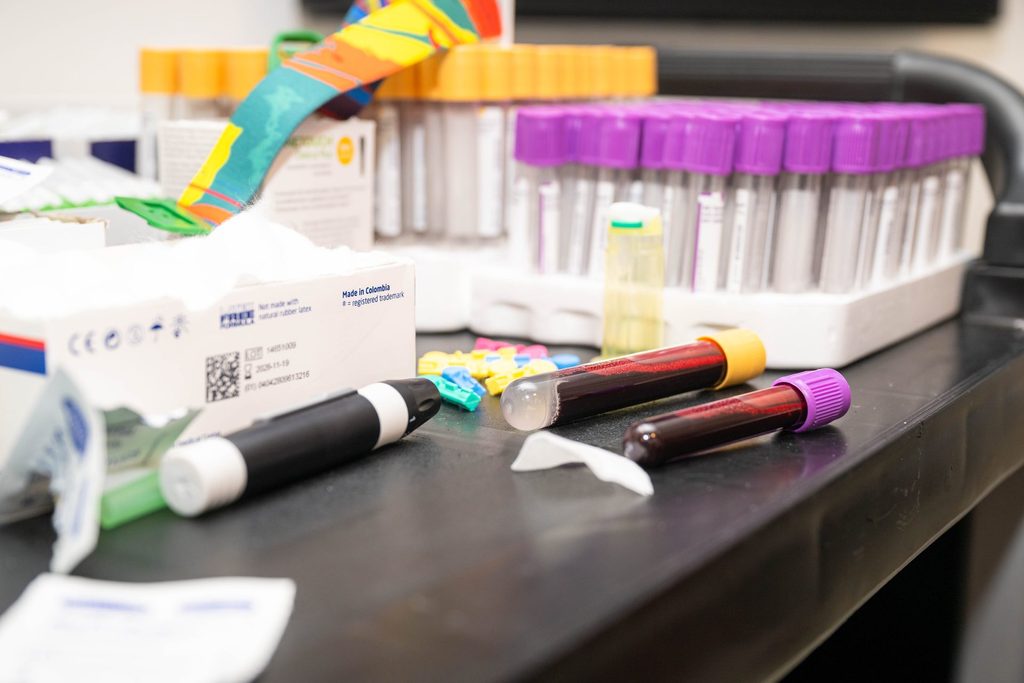Blood tests carried out among several key European politicians and MPs have highlighted the extent to which the continent's population is exposed to PFAS, often referred to as 'forever chemicals'.
Per and poly-fluoroalkyl substances (PFAS) have often made headlines in Belgium, when chemicals were detected in the blood of workers at the 3M factory in Zwijndrecht and people in the surrounding area in 2021. Another scandal involving PFAS in drinking water late last year once again brought the topic back to the top of the agenda.
To highlight how widespread the issue is and draw further attention to the problem of 'forever chemicals', the European Environmental Bureau, Chemsec and Belgium's Bond Beter Leefmilieu took blood samples from several key politicians across Europe.
Three Vice-Presidents of the European Commission, the Commissioner for the Environment, the head of the European Environment Agency and several Members of the European Parliament from various countries (as well as Belgian politicians) had their blood sampled a few months ago.
"Up to seven PFAS were found in all tested individuals in a range of 3.24 to 24.66 µg/L. Five politicians exceeded existing 'safety' threshold levels," the organisations noted.
PFAS don't discriminate
These levels do not significantly differ from the average exposure of Europeans. The results are also not surprising, as these chemicals are found in a whole range of cosmetics and waterproofing products and packaging. But they are worrying, as they are linked to a multitude of severe health issues, including cancer, infertility, birth defects and immune system problems.
The results underline that the entire population of Europe is contaminated with these substances and that no one is immune to the presence of PFAS chemicals. "PFAS contamination does not discriminate. We are all victims," said Tatiana Santos, Head of Chemicals Policy at the EEB.
"No one is immune to chemical pollution, regardless of where or how they live." The EU has one of the strongest chemical control systems in the world, but all Europeans are still exposed to 'alarmingly high' chemical pollution.
Related News
- PFAS exposure may increase risk of diseases in unborn children, new study shows
- Research on PFAS in blood now expanded to more locations across Flanders
The organisations noted that the results reveal a troubling reality of the failure of chemical control in Europe and the urgent need to regulate these substances.
This was mirrored by Frans Timmermans, former Executive Vice-President of the European Commission for the European Green Deal, who also had blood samples taken. "We must stop all emissions of this legalised rubbish. We call on Europe to fully ban the use of these chemicals."
Five Member States have proposed a PFAS ban, and the Belgian Presidency of the Council of the EU has prioritised chemical pollution and PFAS in its political agenda. However, the lengthy process involved in banning the substances means it will be years before these hazardous chemicals are phased out across Europe – especially considering the aggressive lobbying by the industry against such a ban.

